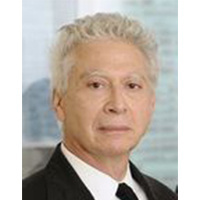 Stamford Criminal Lawyers, Connecticut
Stamford Criminal Lawyers, Connecticut
Sponsored Law Firm
-
 x
x

Click For More Info:
-
Maya Murphy, P.C.
266 Post Road E Westport, CT 06880» view mapDivorce & Family Law Representing Excellence
At Maya Murphy, PC, our attorneys strive to provide large firm service, experience, and ability, with small firm communication, attention, and accountability.
203-221-3100
Sponsored Lawyers
1-10 of 163 matches
Accident & Injury, Divorce & Family Law, Criminal, Traffic
Annemette enjoys criminal defense work, family law and personal injury work. She regularly appears in all Connecticut courts defending those charged with committing a criminal offense, handling contested family cases, and handling personal injury trials. Annemette excels at cross examination of witnesses, jury selection and personal injury litigation. She has represented children and parents in the juvenile and criminal courts, special education proceedings, before the Department of Children and Families and regularly appears in all Connecticut courts. She excels at highly contested cases, and contentious matters, and is admitted to practice in all Connecticut state courts and was admitted to the United States District Court for the District of Connecticut in 2002. Annemette graduated from Quinnipiac School of Law where she was an active participant in the volunteer tax assistance program. She received her Bachelor of Arts degree from Southern Connecticut State University in 1998. She is active with the Connecticut Pro Bono Network, and is multilingual, speaking English and German.Annemette enjoys spending time with her family, including karate tournaments with her children, walking her dog, and time at the beach. Her interests include animal rights, vegetarianism, and child protection, among others.
(more)Criminal, DUI-DWI, Personal Injury, Divorce, Car Accident
Daniel P. Weiner has served people in Fairfield County and throughout the state of Connecticut for nearly 40 years. He and his staff are committed to providing effective legal counsel and serious, aggressive representation to people dealing with a wide range of legal matters, including criminal charges, juvenile matters, personal injury or divorce and family law issues.
(more)Criminal, Lawsuit & Dispute, Divorce
Attorney Levites is a practicing lawyer in the state of Connecticut.
(more)

 Joseph C. Maya Westport, CT
Joseph C. Maya Westport, CT Practice AreasExpertise
Practice AreasExpertise




